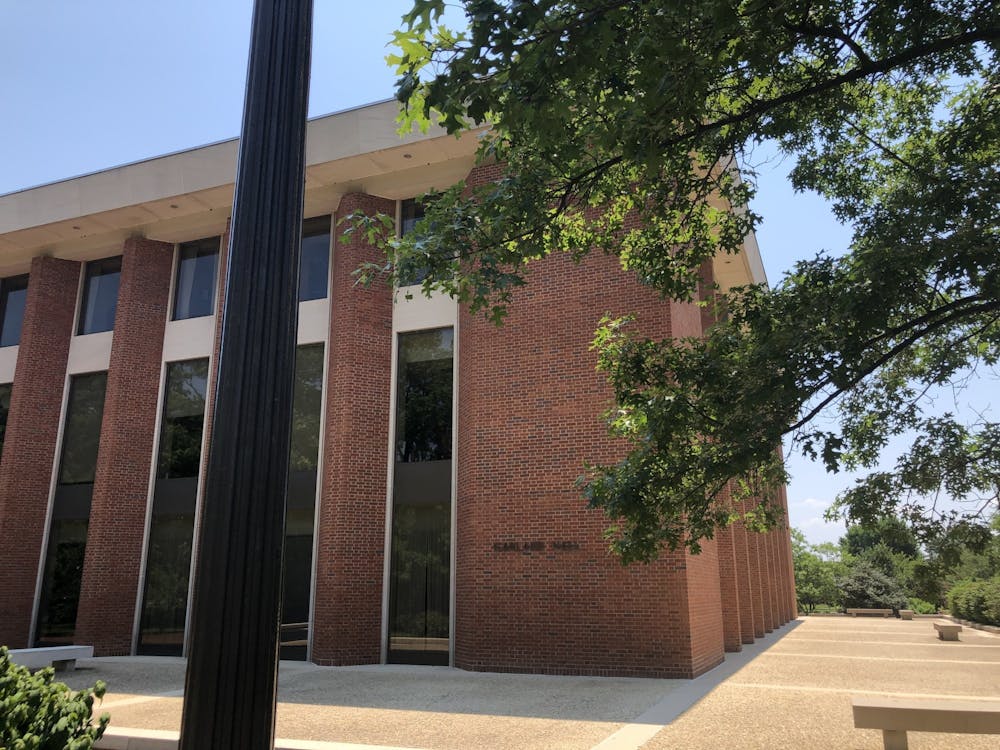As an international student, I have been disappointed by the Hopkins administration numerous times for how it treats its students, staff and faculty. That is why, when an online teaching format with reduced tuition was announced, I was genuinely happy. The tough decision is ultimately the safest way to resume school and reduce financial stress from the pandemic. However, much more needs to be done to better support the student body, such as a clear communication strategy and a comprehensive support network.
Hopkins decided to reduce the tuition and adapt to a fully online semester, showing some social responsibility apt for such an internationally renowned university. However, tuition reduction and an “extra $14.8 million in need-based aid ” cannot make up for the unnecessary anxiety and financial burden caused by the University’s continually delayed communication with students.
I have conflicted feelings about the Hopkins administration. I appreciate the fact that the University stood up for international students once. But adminstrators also gave me the impression that they only care about us when our struggle affect them financially. Amid tightening control and growing hostility toward international students from China, sinophobia has escalated to a new level. Hopkins did nothing until U.S. Immigration and Customs Enforcement attempted to deport international students, an act that could potentially impact the University's enrollment and, consequently, tuition revenue.
The decision to move fully online and reduce tuition this fall is not enough; improved communication and more solid support networks must be put in place for students. This is especially true for international students, who cannot, for example, call the University directly to inquire about what is going on or how they should best respond.
As of now, most international students are facing extreme difficulties, whether it’s the risks associated with long-distance traveling, uncertainties related to tech accessibility from abroad or hostility due to rising tension leading up to the 2020 election. This is why a clear communication strategy and comprehensive support network are more important than just a reduction in tuition.
When plans for next school year were not optimistic for international students returning to campus, several international students from China emailed Hopkins administrators to lobby for some options similar to New York University’s Go Local program, where international students can attend some in-person classes in countries where the risk of the coronavirus (COVID-19) is considerably lower than in the United States. In its usual fashion, Hopkins was slow to respond. In an email two weeks later, administrators dismissed the option, claiming that the Go Local Proposal was shared with the undergraduate academic committee and the director of the Office of Study Abroad. The email (which was viewed by The News-Letter) reads, “Unfortunately, at the current time, there was not interest from the school to pursue this option.”
To make this even more confusing, all first-year international students currently residing in China received an email from the Whiting School of Engineering just two days later, detailing an option to study in-person at Donghua University in Shanghai. The curriculum included a minimum of 12 credits of Hopkins online courses, China Academic Programs in-person classes and direct enrollment in Donghua. This email was received with widespread frustration from students and parents alike. Even though it failed to guarantee an equal Hopkins experience, the program was set to cost Hopkins tuition plus fees for Donghua of $9,000. Because of the intense backlash, this option was canceled a mere week later.
To me, it doesn’t feel that Hopkins cares enough about students to work on a coherent, thoughtful plan. As a Chinese international student, I constantly fear that escalating U.S.-China tension could make international students an easy hostage for politicians. Taking a gap and going home, while a safe and secure option for many domestic students, could lead to termination of visa status, refusal of entry or even the conclusion of one’s educational career. Consequently, only four percent of Chinese students are aborting their study abroad plans because of COVID-19. In order for students to be able to make plans, clear communication and comprehensive support from Hopkins is necessary.
The University’s decision to cut tuition reflects a willingness not to stretch the education and wealth gap exacerbated by the pandemic, so that not only the wealthier households can afford education. But to uphold that principle of equal educational opportunity in an especially chaotic time, a tuition cut is only a first step toward making a comprehensive system for Hopkins to operate smoothly in the fall.
Most importantly, Hopkins needs to ensure that all students are effectively communicated with, so that they are informed well enough in advance to make the best decisions. As the presidential election approaches, some states reopen, some activities resume, traveling increases and flu season nears, Hopkins needs to communicate frequently about everything going on, so students can get through the upcoming semester safe and healthy.
Shizheng “JJ” Tie is a senior studying Environmental Engineering from Luoyang, China.

















